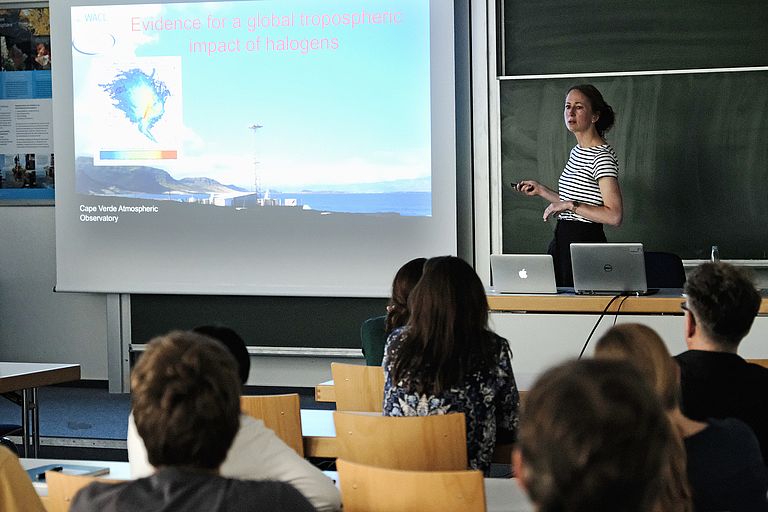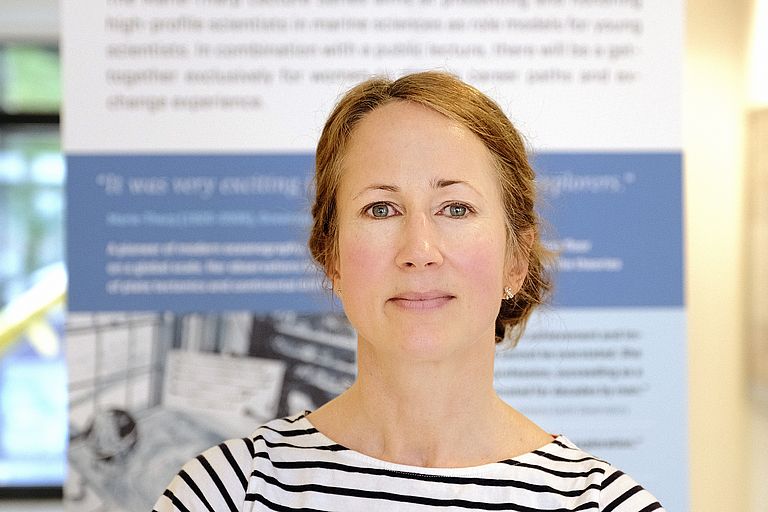Air-Sea Feedbacks: The Changing Impacts of Marine Halogens on the Atmosphere
Prof. Dr. Lucy Carpenter of the University of York gave a Marie Tharp Lecture at GEOMAR
06 June 2019/Kiel. Marine derived halogen compounds containing chlorine, bromine, and iodine impact both tropospheric and stratospheric chemistry, mainly as ozone depleting substances. Dr. Lucy Carpenter, Professor of Physical and Atmospheric Chemistry at the University of York, investigates the controls and mechanisms responsible for their oceanic release. Today, Prof. Dr. Lucy Carpenter discussed the pervasive impact halogens have on atmospheric chemistry across the world’s oceans as part of the Marie Tharp Lecture Series at GEOMAR. In her lecture, she focused on iodine chemistry, for which the main source to the atmosphere is believed to be marine inorganic iodine. Prof. Carpenter presented advances in understanding the chemistry and exchange of halogenated gases and the subsequent, potentially changing, impacts on the atmosphere.
Lucy Carpenter began her chemistry studies at the University of Bristol in the UK. After a year abroad in Mexico, Prof. Carpenter returned to the UK to obtain her PhD at the University of East Anglia (UEA), which she completed in 1996. After her first postdoctoral position at UEA, she moved to Australia and then Leeds in the UK before obtaining her first position at the University of York in 2000. In 2009, Prof. Carpenter became a Professor in Physical and Atmospheric Chemistry at York. Since that time, she has been the Head of Physical and Atmospheric Chemistry and is now the Chair of the Research Committee and Deputy Head of Department Research in the Department of Chemistry at the University of York. Interestingly, Prof. Carpenter worked a part-time position from 2003 to 2016 in order to care for her growing family. During that time, she received numerous awards, sat on several international committees, was a lead author on the WMO Scientific Assessment of Ozone Depletion, and established the Cape Verde Atmospheric Observatory, which she still operates to the present day. In 2018, she received the Royal Society Wolfson Research Merit Award for her outstanding scientific achievements.
The "Marie Tharp Lecture Series" is hosted by the Women's Executive Board (WEB) of GEOMAR. The WEB invites internationally renowned female scientists to present their scientific work in Kiel, with the primary intent to serve as role models for young female scientists. After Prof. Carpenter’s lecture, the lunch get-together was opened to both male and female scientists for the first time. All young scientists had the opportunity to exchange with the renowned speaker and discuss possible career paths.





